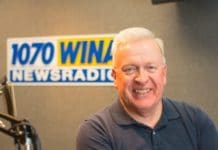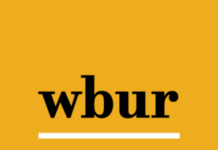
(By Mike McVay) Those are words that I’ve heard a few times in my life. There is a lot to consider when interviewing to hire a PD. There are those things that are tangible and those that are intangible. My experience is that some Market Managers, not all, interview for a Program Director as if they’re interviewing for a Director of Sales. They look at organizational skills, drive, personality, and even appearance, in a way that’s not necessarily a common-thread between the two positions.
Therein is the base issue of why some stations in some markets have continual turnover in the programming position. The skill set required to be a DOS and those skills required to be a PD are very different. The personality types of the two are divergent. One is a creative whose spirits can be shattered by the word “No.” The other is someone who hears “No” as an obstacle to be overcome.
The consideration and evaluation of a candidate for the Program Director position should be based on several key factors that are universal. They are:
Experience; This is more than what’s on a resume. A resume is a chronological list of jobs you’ve had. It’s more important to have the candidate take you through their career. Explore each job, discuss the situation, and probe the candidate in regard to their rating results. Ask them for their analysis of the talent they managed and how did they collaborate with others that they worked with or reported to in the execution of their job. Did they accomplish what they wanted to in those previous jobs and if not then why not?
Training; Who mentored and/or trained you to be a Program Director? That’s a great question, especially for those PD’s who are early in their career. Good habits are picked up as easily as bad habits. Much like the “NFL or College Football Coaching Tree” that we hear so much about, there are many examples of successful Program Directors who came from the same mentor.
Knowledge; That is knowledge of what works and what doesn’t work when it comes to competing for ratings. Does the candidate understand, and can they explain, why they won in certain situations and lost in others? Do they have a format area of expertise? What’s the difference between how you compete in one format versus another format? How about computer skills, operating systems used in control rooms, music scheduling, do they understand how to use the tools of Nielsen. Do they understand what the ratings mean?
Rating Track Record; Most candidates want to talk about their victories and not their failures. They want to “pump up their rating successes” as wins while hiding their losses. Ask specifically about the losses. If you’ve programmed long enough, you’ve had losses, as it is impossible to be up every rating sweep. No on has a 100 share unless they’re the only station in a market. Rating research is an inaccurate science. Talking about a rating failure is more important than talking about a win, as from that discussion you will learn if the programming candidate learned from the situation, if they understood why they didn’t win, and if there was something that they would have done differently.
Managing Talent; Ask about talent that have worked at this candidates’ previous stations. How did they manage their talent as individuals and how did they manage them as a team? Who did they get along well with and who was a difficult person to manage? Specific examples will give you great insight into how they work with others. Ask them what their talent would say about them if you called and spoke to them. Not every talent loves every PD, and that doesn’t make the PD a bad candidate. What you’re looking for is a pattern that indicates they’re good or bad in the area of managing and coaching personalities.
Managing Upward; One of the greatest things I ever learned from my mentor was to manage upward. Once I understood what was important to my superior, I was able to satisfy him or her and that put me on an upward trajectory. Ask the candidate how they like to be managed and how they manage upward.
Managing Sideways; The same can be said for working with the other department heads. The PD candidate will need to be able to work collaboratively with the DOS, Chief Engineer, News Director, Promotion Director Traffic Manager, Legal, the Business Manager and other PDs in the cluster. Does this person work well with others?
Ability to Work with Sales; The very best Program Directors understand the need to have a good relationship with sales. They understand the need to be available to meet with clients, to see to it that commercials are produced and make it onto the air, and they understand the struggles of selling anything to a prospect. Ask for specific situations where it worked well and where the relationship between sales and programming was challenging.
Promotion; Depending on the size of the market, the Program Directors job may include also being the Promotion Director. Even if it doesn’t for the current position, most of us have started in a small market where promotion was an important part of the job. Ask why, when and how they would execute a promotion. How do they build cume? How do they build AQH Share? What are some examples of successful sales promotions that they’ve executed? Same for audience generating promotions. Do they have a basic understanding of the legal element of contests, what constitutes a lottery and how to execute appearances and remote broadcasts?
Leadership Skills; Doing an in-depth conversation, such as this interview process, you should start to see the characteristic of this individual as a leader. To be specific, though, ask them what leaders they have admired and/or enjoyed working with and how they’d like to be remembered as a leader. How do they motivate a staff? How do they communicate with their staff and how will they communicate with you. Share your style of leadership with the candidate and make them aware of your expectations.
Work Ethic; This one is important. It’s not about the hours that someone puts into their job, but rather their accomplishments. What is their level of dedication to the job and to winning the battle for the audience? The objective isn’t to find someone who will cheat, break the rules, be a taskmaster, but rather to find someone who is dedicated to accomplishing the tasks to reach the goals of the station.
Personal Life; You can ask about hobbies, family, their guilty pleasures and about movies they’ve seen, books they’ve read, their education, if there is a person or persons that they admire within their family. What area did they enjoy living in the most? Does the candidate they have a pet? These questions aren’t designed to meet a criterion that you have for the position, but to better understand who the candidate is and will she or he be happy in the environment of your radio cluster.
Personality Alignment; Do you like this person? I know … right? It’s an important thing to determine. You need to be closely aligned with your program director and you need to communicate with them regularly. Do you think that you’ll like working with them and spending time together? It’s not about friendship, but it is about aligning your personality with theirs so that you can feel confident that the two of you can work well together and accomplish your goals. Likability matters.
Mike McVay is President of McVay Media and can be reached at [email protected]. Read Mike’s Radio Ink archives here.






Wally, I definitely take exception to your comment.
Now, granted, it’s been a while since I was a PD, but in the jobs where I WAS a Program Director, I am not “afraid” of “real talent”. But, what IS “real talent” these days? Guys who wish to use foul language on the air and smoke dope like Joe Rogan and all of his guests? If you’re a broadcast professional you know full well that’s totally out of the control of the radio station. Show me someone with real talent who understands how to entertain on over the air terrestrial radio and I am not the slightest bit afraid to let them do what they do best.
Why do we do contests? Ones done well move the ratings needle. I am not a giant fan of these collective contests simply because if the station pool is too big the chance of a local winner is nil. With a smaller group, a collective can have more local winners than they did in the old days of big promotions budgets. This old fart has worked it both ways. And the station group I work for does local concert ticket giveaways for all stations and we answer the phones for contests. We go out on the streets. We meet listeners. I certainly realize some companies have cutback way more than they should have. They did it to themselves. And what will happen to them in the future is their fault and I, for one will not cry if some of them go out of business and have to divest everything.
Websites and digital contact with listeners via the various social media sites are critical today and if you don’t understand that, WOW.
The bottom line, Wally – is we’re a business. It’s great if it is “something that’s cool” and we as an industry should be working toward that. But, those of us who work in station programming from the PD down have to know that we don’t run the train.
Have you noticed lately that every consultant in this business is saying the same things these days? I can remember a day when there were major differences in the attitudes of all of the consultants. Yes, many of the “money guys” who own many stations today (though not anywhere close to a majority of them), do miss the boat on what they should be doing. And, I agree. We don’t get to make all of the decisions.
All we all can do is – our best. And if that’s not good enough, we are all smart enough to figure out what our next steps should be. Having spent almost 50 years on air now, it is not easy to do this job. Because no more is this job as it was decades ago…you came in, did your three or four hours on the air, recorded a couple of spots, posed for some publicity photos, went home, did some prep for the next day. When the sun rose again, you came in and did it all over again. Today, we do SOME of those things, but we do them now multi tasking and doing two or three things at the same time…working tracking multiple stations (and some for multiple groups of stations), and trying to make it all sound good. Sometimes we’re meeting ourselves coming and going because of it.
But where is the recognition? For this old guy, it’s as it was for me about two weeks ago. I’m getting a blood test for my next doctor’s appointment and the two young phlebotomists say to me, “Did you know you sound like (air name) on (station)?” Despite having a needle in my hand, I managed to chuckle and say, “Well, there’s a reason for that. I AM (air name) on (station).” Suddenly, the guy they were sticking a needle into became, in their eyes, a celebrity. And they said exactly that. Come to think of it, the very same thing happened at my last cholonoscopy, and I am NOT kidding.
This is how I know radio still reaches people and that I am still making a difference.
The only radio station I ever worked for as a PD who “asked me to step down” regretted it in the end. Why? I had been suggesting to the upper management what I thought they should do because the station was not making money. But the “conventional wisdom” of the time said otherwise. So I left, went back home and took the job I have as a “worker bee” today. And that was 19 years ago. Guess how that station group got “their mojo” back? By doing EXACTLY what I told them to do. But, years later and with a different property.
As the VP of programming told me on the day I left, “You didn’t fail us. We failed you.”
Sometimes that happens. But, I have never gone into a radio station PD’s job with the intention of firing everybody. And the couple of stations I programmed always performed as well as possible (even the flanker with a limited signal) and we had fun. I always tried to “get out of the way” and let my people do what they could do – be performers.
We should do more of that in radio these days.
Most PD’s are scared of real talent because PD’s are mostly old, out-of-touch people who are playing to keep their jobs as opposed to actually trying to create something that’s really cool. The industry has not listened to these sites and blogs for the last 3 decades and they won’t start now. Contests and begging people to visit the station websites (which all suck) is what radio has become.